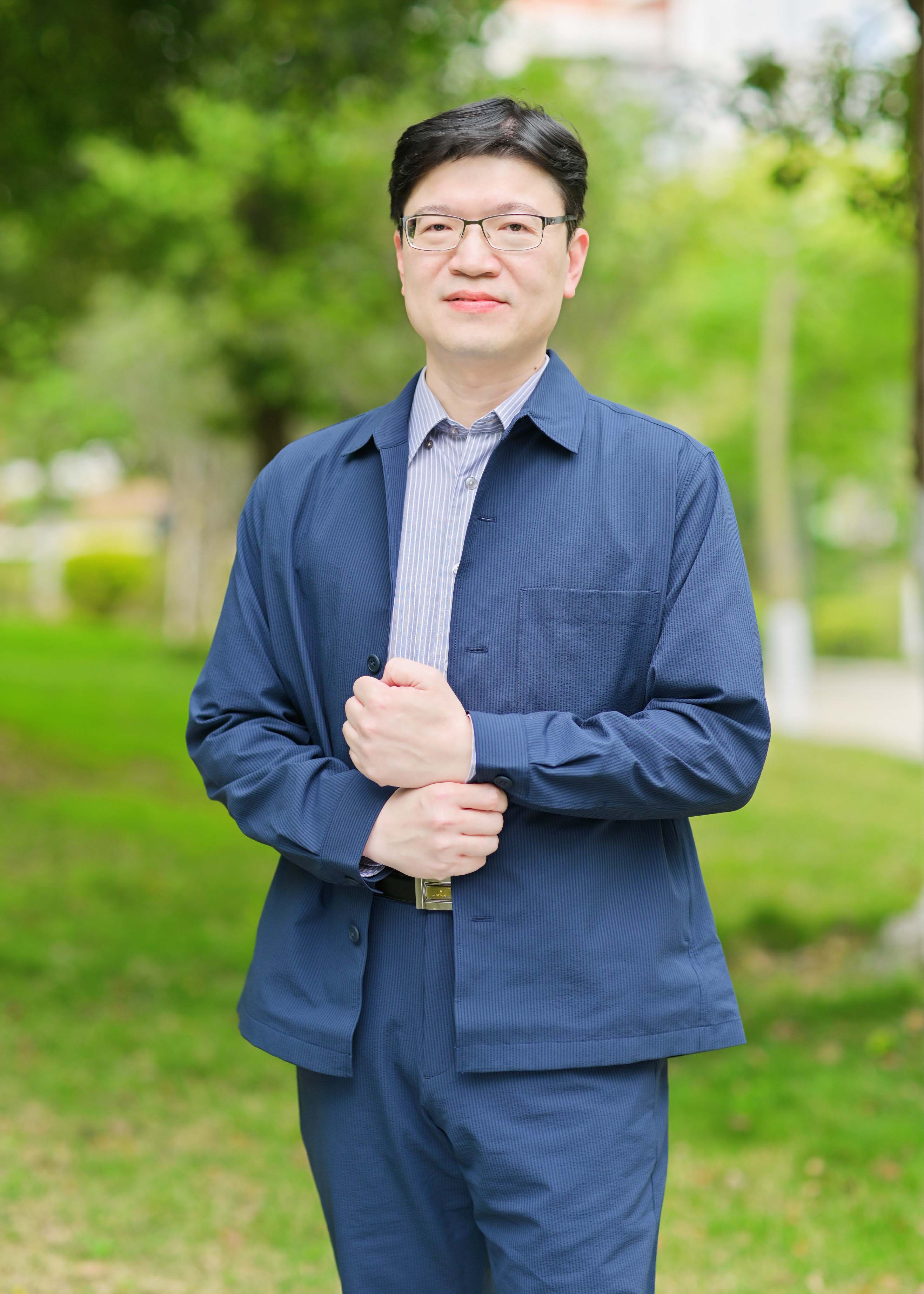1996年,台湾大学生物学专业,学士学位;
1998年,台湾长庚大学基础医学专业,硕士学位;
2005年,台湾阳明大学微生物学专业,博士学位;
2005-2009年,台湾中央研究院分子生物研究所,博士后;
2009-2014年,美国Scripps研究所,博士后;
2015年至今,伟德BETVlCTOR1946教授;
2016年,厦门市第二批台湾特聘专家;
2017年,厦门市第九批双百计划。
2019年,入选福建省台湾百人计划
B.S. 1996, Taiwan University, Biology;
M.S. 1998, Chang Gung University, Basic Medicine;
Ph.D. 2005, Yang Ming University, Microbiology;
Postdoctoral Fellow, Institute of Molecular Biology, Academia Sinica, 2005-2009;
Research Associate, The Scripps Research Institute, 2009-2014;
Professor, School of Life Sciences, Xiamen University, 2015 to Present.
T细胞耐受包含三种主要机制:清除、T细胞失能及调节性T (Treg) 细胞介导的抑制作用, 自我反应T细胞通过破坏T细胞耐受造成组织损伤及炎症反应。自我反应T细胞和Treg 细胞的异常调节被认为是引起众多自身免疫病和炎症病变的主要原因。此外, 滤泡辅助性T (Tfh)细胞、Treg细胞、CD8 T细胞和浆细胞分化的调节不仅调控体液免疫反应,同时也参与肿瘤免疫和自身免疫病的致病。本课题组主要探讨激酶、磷酸酶、RNA 结合蛋白(RBPs)和代谢相关基因 对Treg、Tfh细胞、Th17细胞、CD8 T细胞和浆细胞分化以及T细胞耐受的作用和调节机制。我们利用体内与体外功能CRISPR筛选系统、基因敲除和转基因小鼠的构建与分析,通过小鼠病毒感染模型、肿瘤模型、自身免疫病和炎症疾病模型的应用与分析, 去探究上述基因在这些淋巴细胞分化与疾病的功能和作用,阐明激酶、磷酸酶、RBPs和代谢相关基因在调节免疫应答、自身免疫病和肿瘤免疫之间的因果关系, 最后能提供开发有效药物新靶点的学理参考依据。
Self-reactive T cells cause tissue damage and inflammation by compromising T cell tolerance, which employs three mechanisms: deletion, anergy and regulatory T cell (Treg)-mediated suppression. Dysregulation of self-reactive T cells is a major driving force in many autoimmune diseases and inflammatory disorders. In addition, follicular helper T (Tfh) cells, Treg cells, CD8+ T cells, germinal center (GC) B cells, and plasma cells play critical roles in humoral immune responses and anti-tumor immunity. Our laboratory will focus on studying the regulation of Tfh, Treg, Th17, CD8 T, GC B, plasma cell differentiation and function by kinases, phosphatases, RNA-binding proteins (RBPs) and genes related to cell metabolism. The experimental approaches employed in our laboratory include gene expression profiling, in vitro and in vivo CRISPR screening, generation and analysis of knockout/transgenic mice, and mouse models of human diseases. Our goals are: 1) to elucidate the molecular and cellular mechanisms underlying generation and function of Tfh, Treg, Th17, CD8 T, GC B, plasma cells, and tumor immune tolerance, and 2) to establish the causative relationships between various mechanisms and immune responses, autoimmune diseases and cancer.
代表性论文(# co-first author, * Corresponding author):
1. Y. Fu#, J. Wang, C. Liu, K. Liao, X. Gao, R. Tang, B. Fan, Y. Hong, N. Xiao, C. Xiao, W.-H. Liu#. (2023). Glycogen synthase kinase 3 controls T-cell exhaustion by regulating NFAT activation. Cell Mol. Immunol. 20: 1127-1139.
2. J. Xie*, Y. Du*, D. Liu, J. Wu, K. Yang, X. He, J. Zhao, P. Hong, K. Liao, H. Zhang, Y. Hong, J. R. Teijaro, S. G. Kang#, C. Xiao#, W.-H. Liu#. (2023). The miR-17∼92 miRNAs promote plasma cell differentiation by suppressing SOCS3-mediated NIK degradation. Cell Rep. 42: 112968.
3. X. He*, J. Zhao*, A. Adilijiang, P. Hong, P. Chen, X. Lin, J. Xie, Y. Du, Y. Liu, L. Lin, H. Y. Jin, Y. Hong, W.-H. Liu#, C. Xiao#. (2023). Dhx33 promotes B-cell growth and proliferation by controlling activation-induced rRNA upregulation. Cell Mol. Immunol. 20: 277–291.
4. J. Wu*, K. Yang*, S. Cai*, S. Zhang*, L. Hu, F. Lin, S. Wu, C. Xiao, W.-H. Liu#, J. Han#. (2022). A p38α-BLIMP1 signalling pathway is essential for plasma cell differentiation. Nat Commun. 13: 7321.
5. C. Yang*#, Y. Liu*, Y. Hu*, L. Fang, Z Huang, H. Cui, J. Xie, Y. Hong, W. Chen, N. Xiao, Q. Li#, W.-H. Liu#, C. Xiao#. (2022). Myc inhibition tips the immune balance to promote antitumor immunity. Cell Mol. Immunol. 19: 1030-1041.
6. C. Liu*, L. Ma*, Y. Wang*, J. Zhao, P. Chen, X. Chen, Y. Wang, Y. Hu, Y. Liu, X. Jia, Z. Yang, X. Yin, J. Wu, S. Wu, H. Zheng, X. Ma, X. Sun, Y. He, L. Lin, Y. Fu, K. Liao, X. Zhou, S. Jiang, G. Fu, J. Tang, W. Han, X. Chen, W. Fan, Y. Hong, J. Han, X. Huang, B.-A. Li, N. Xiao, C. Xiao#, G. Fu#, W.-H. Liu#. (2021). Glycogen synthase kinase 3 drives thymocyte egress by suppressing β-catenin activation of Akt. Sci. Adv. 7: eabg6262.
7. L. Yang*, W. Chen*#, L. Li, Y. Xiao, S. Fan, Q. Zhang, T. Xia, M. Li, Y. Hong, T. Zhao, Q. Li*, W.-H. Liu#, N. Xiao#. (2021). Ddb1 is essential for the expansion of CD4+ helper T cells by regulating cell cycle progression and cell death. Front Immunol. 12:72227.
8. W.-H. Liu*#, S. G. Kang*, Z. Huang*, C.-J. Wu, H.-Y. Jin, C. J. Maine, Y. Liu, J. Shepherd, M. Sabouri‐Ghomi, A. Gonzalez-Martin, S. Xu, A. Hoffmann, Y. Zheng, L.-F. Lu, N. Xiao, G. Fu#, C. Xiao#. (2016). A miR-155-Peli1-c-Rel pathway controls the generation and function of T follicular helper cells. J. Exp. Med. 213: 1901-1919.
9. S. G. Kang*, W.-H. Liu*, P. Lu*, H. Y. Jin, H. W. Lim, J. Shepherd, D. Fremgen, E. Verdin, M. B. A. Oldstone, H. Qi, J. R. Teijaro# and C. Xiao#. (2013). MiR-17~92 family microRNAs are critical regulators of T follicular helper cell differentiation. Nat. Immunol. 14: 849-857.
10. H.-W. Hsiao*, W.-H. Liu*, C.-J. Wang, Y.-H. Lo, Y.-H. Wu, S.-C. Jiang and M.-Z. Lai#. (2009). Deltex1 is a novel NFAT target that promotes T cell anergy. Immunity 31: 72-83.
荣誉、奖励及参加学术团体的情况:
国家自然科学基金委员会面上项目
糖原合成酶激酶3在调节性T细胞分化和功能以及自身免疫病中的作用机制研究
横向项目
肿瘤免疫和自身免疫病的细胞分子机理研究 (赛诺菲)
 下载Firefox
下载Firefox
 下载Firefox
下载Firefox
